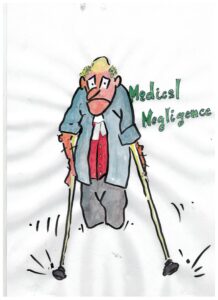CDPP Prosecution Policy
- 2021-03-08
- By Dr Will Higgs PhD, Barrister
- Posted in Crime, Financial Services
The Prosecution Policy of the Commonwealth underpins all of the decisions made by the CDPP throughout the prosecution process and promotes consistency in decision making. It is a public document and applies to all Commonwealth prosecutions.
The Prosecution Policy outlines the relevant factors and considerations which are taken into account when our prosecutors are exercising their discretion. The Policy also serves to inform the public and practitioners of the principles which guide the decisions made by the CDPP.
The Prosecution Policy provides a two-stage test that must be satisfied before a prosecution is commenced:
- there must be sufficient evidence to prosecute the case; and
- it must be evident from the facts of the case, and all the surrounding circumstances, that the prosecution would be in the public interest.
In determining whether there is sufficient evidence to prosecute a case the CDPP must be satisfied that there is prima facie evidence of the elements of the offence and a reasonable prospect of obtaining a conviction. The existence of a prima facie case is not sufficient.
In making this decision, our prosecutors must evaluate how strong the case is likely to be when presented in court. They must take into account matters such as the availability, competence and credibility of witnesses, their likely effect on the arbiter of fact, and the admissibility of any alleged confession or other evidence. The prosecutor should also have regard to any lines of defence open to the alleged offender and any other factors that could affect the likelihood or otherwise of a conviction.
The possibility that any evidence might be excluded by a court should be taken into account and, if that evidence is crucial to the case, this may substantially affect the decision whether or not to institute or proceed with a prosecution. Prosecutors need to look beneath the surface of the evidence in a matter, particularly in borderline cases.
Having been satisfied that there is sufficient evidence to justify the initiation or continuation of a prosecution, the prosecutor must then consider whether the public interest requires a prosecution to be pursued. In determining whether this is the case, prosecutors will consider all of the provable facts and all of the surrounding circumstances. The public interest factors to be considered will vary from case to case, but may include:
- whether the offence is serious or trivial;
- any mitigating or aggravating circumstances;
- the youth, age, intelligence, physical health, mental health or special vulnerability of the alleged offender, witness or victim;
- the alleged offender’s antecedents and background;
- the passage of time since the alleged offence;
- the availability and efficacy of any alternatives to prosecution;
- the prevalence of the alleged offence and the need for general and personal deterrence;
- the attitude of the victim;
- the need to give effect to regulatory or punitive imperatives; and
- the likely outcome in the event of a finding of guilt.
- These are not the only factors, and other relevant factors are contained in the Prosecution Policy.
Generally, the more serious the alleged offence is, the more likely it will be that the public interest will require that a prosecution be pursued.
The decision to prosecute must be made impartially and must not be influenced by any inappropriate reference to race, religion, sex, national origin or political association. The decision to prosecute must not be influenced by any political advantage or disadvantage to the Government.
SEARCH BLOG POSTS
LATEST BLOG POSTS
- Updated product safety mandatory reporting guidance for suppliers now available
- Pleading fraud – cause and effect is essential
- Does the Trustee’s right of indemnity have priority over the right of beneficiaries in relation to assets?
- Rules of war (in a nutshell) | The Laws Of War
- MH370 Final Report
Past Blog Posts
- December 2021
- September 2021
- August 2021
- May 2021
- April 2021
- March 2021
- August 2020
- February 2020
- September 2019
- February 2019
- December 2018
- July 2018
- April 2018
- December 2017
- May 2017
- February 2017
- December 2016
- November 2016
- October 2016
- September 2016
- August 2016
- April 2016
- March 2016
- October 2015
- September 2015
- August 2015
- May 2014
- April 2014
- March 2014
- January 2014
Categories
- Appeals
- Artificial Intelligence
- Aviation law
- Banking and Finance Law
- Blogs
- Civil Liability Act
- Class Actions
- Coding for lawyers
- common law
- Consumer Claims (TPA)
- Contract Law
- Contractual Interpretation
- Criminal law
- Deeds
- Docassemble
- duty of care
- Engineering Law
- Equity
- Evidence
- Exclusion Clauses
- Execution of documents
- Expert Witness
- featured
- Financial Services
- Fraud
- Fundraising (Chapter 6D)
- General comment
- Home Building Law
- Insurance
- Legal drafting
- Local Court
- Medical Negligence
- MH370
- Motor Accidents
- Negligence
- Occupiers negligence
- Other
- Personal Injury
- Personal Property Securities (PPSA)
- Pleading
- Practice & Procedure
- Products Liability
- Property
- Real Property
- Reasons for a decision
- Securitisation
- Security (Mortgages & Charges)
- Sentencing
- Swaps & Derivatives
- Teaching
- Transactional Law
- Transfer of financial assets in transactions
- Trusts & Trustee Law
- Uncategorized
- War and Weaponry
- Witnesses
SEARCH BLOG POSTS
LATEST BLOG POSTS
- Updated product safety mandatory reporting guidance for suppliers now available
- Pleading fraud – cause and effect is essential
- Does the Trustee’s right of indemnity have priority over the right of beneficiaries in relation to assets?
- Rules of war (in a nutshell) | The Laws Of War
- MH370 Final Report
Past Blog Posts
- December 2021
- September 2021
- August 2021
- May 2021
- April 2021
- March 2021
- August 2020
- February 2020
- September 2019
- February 2019
- December 2018
- July 2018
- April 2018
- December 2017
- May 2017
- February 2017
- December 2016
- November 2016
- October 2016
- September 2016
- August 2016
- April 2016
- March 2016
- October 2015
- September 2015
- August 2015
- May 2014
- April 2014
- March 2014
- January 2014
Categories
- Appeals
- Artificial Intelligence
- Aviation law
- Banking and Finance Law
- Blogs
- Civil Liability Act
- Class Actions
- Coding for lawyers
- common law
- Consumer Claims (TPA)
- Contract Law
- Contractual Interpretation
- Criminal law
- Deeds
- Docassemble
- duty of care
- Engineering Law
- Equity
- Evidence
- Exclusion Clauses
- Execution of documents
- Expert Witness
- featured
- Financial Services
- Fraud
- Fundraising (Chapter 6D)
- General comment
- Home Building Law
- Insurance
- Legal drafting
- Local Court
- Medical Negligence
- MH370
- Motor Accidents
- Negligence
- Occupiers negligence
- Other
- Personal Injury
- Personal Property Securities (PPSA)
- Pleading
- Practice & Procedure
- Products Liability
- Property
- Real Property
- Reasons for a decision
- Securitisation
- Security (Mortgages & Charges)
- Sentencing
- Swaps & Derivatives
- Teaching
- Transactional Law
- Transfer of financial assets in transactions
- Trusts & Trustee Law
- Uncategorized
- War and Weaponry
- Witnesses




